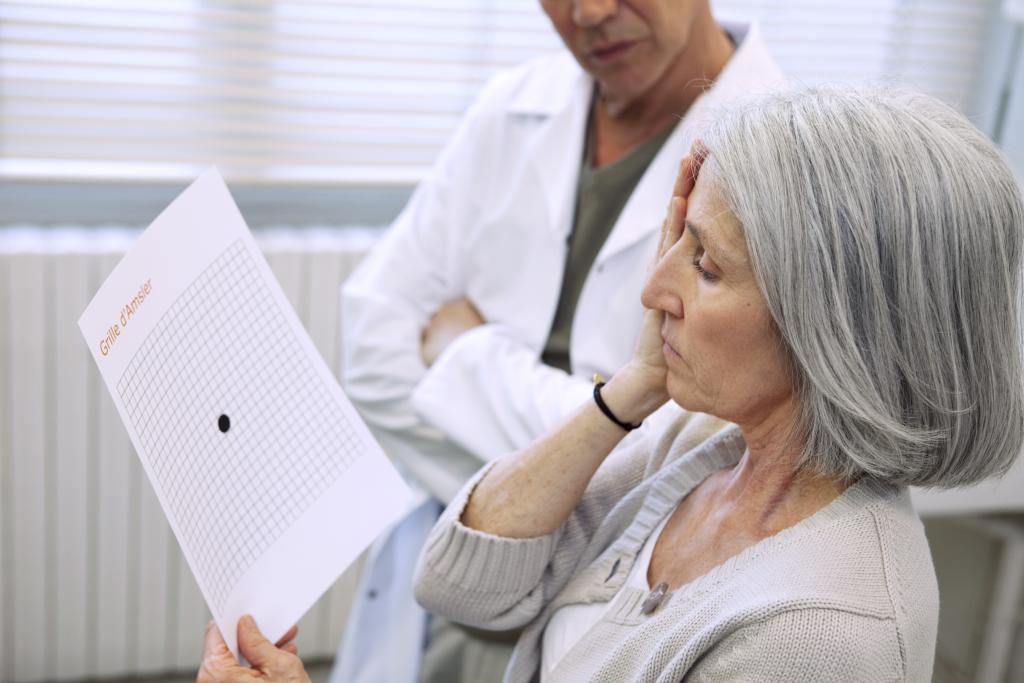Your vision is perhaps your most important sense. It’s your eyes that allow you to see your surroundings, take in incredible sights, and experience everyday life. But as you age, your vision can rapidly change – and you could begin to lose your ability to see.
Often, vision loss is caused by macular degeneration. This single condition is the leading cause of vision loss in Americans, affecting more than 10 million people according to the American Macular Degeneration Foundation¹. That’s more than cataracts and glaucoma combined.
 Image Point Fr / Shutterstock
Image Point Fr / ShutterstockAnd unfortunately, macular degeneration is incurable². Once macular degeneration begins, you’re at risk for losing your vision completely. That’s why it’s so important to understand the facts about this condition.
What exactly is macular degeneration? Simply put, it’s a condition that happens when the retina begins to deteriorate. The center of the retina, or the macula, deteriorates and begins to affect your vision in various ways. And over time, the changes make it difficult to see clearly, detect color, and see from different angles.
Learning about macular degeneration can help you notice its very first signs and symptoms. Here’s what everyone should know about this serious – and common – eye condition.
The Causes of Macular Degeneration
Macular degeneration can occur in absolutely anyone. And if you’re wondering what causes this condition, you aren’t alone.
According to the American Macular Degeneration Foundation, medical professionals actually don’t know what causes macular degeneration³. It’s known that the condition is complex, and that multiple factors from both genetics and a person’s environment can play a role in its development.
Are You At Risk?
Everyone should be concerned about their risk for developing macular degeneration. It’s not just incredibly common. Doctors expect the number of cases to increase dramatically to approximately 6.3 million people as members of the Baby Boomer generation reach their senior years⁴.
But how at risk are you for this condition?
If you have certain risk factors present in your family history or lifestyle, you may be at an increased risk for macular degeneration. Although the causes are both complicated and unknown, there are some particular factors that are known to be connected.
The following are known risk factors macular degeneration, according to the American Macular Degeneration Foundation5:
- Smoking
- Your age (older adults are more susceptible)
- Being overweight (particularly if your excess weight falls around your abdomen)
- Being diagnosed with cardiovascular disease
- Living with high blood pressure
- Long-term exposure to the sun without wearing eye protection
- Having a family history of macular degeneration
Some of these risk factors are controllable, while some are not. If you have any controllable risk factors, you can take steps to change your lifestyle and your health now. And doing that may help you reduce your risk for macular degeneration as you age.
Symptoms of Macular Degeneration
When macular degeneration first begins in the eyes, it can be difficult to detect. While you might expect to immediately experience symptoms and vision loss, that isn’t always the case.
In its early stages, macular degeneration can appear with no symptoms⁶. And that makes it difficult to spot the condition.
As macular degeneration progresses, it begins to show symptoms. According to WebMD, the first symptom is typically a change in your quality of vision – that can be a slow, gradual change or a sudden, unexpected change⁷. Symptoms can differ from person to person, but common changes include:
- Seeing straight lines become distorted.
- Dark, blurry areas in your vision.
- A whiteout that appears in the center of your line of vision.
- A change in the way you see colors.
If you notice any changes to your vision, it’s important to mention them to your doctor. Regular eye exams, as well as paying careful attention to any changes, can help you catch macular degeneration early.
How Macular Degeneration is Treated
There is no cure for macular degeneration. It progresses over time, and it can ultimately cause severe vision loss.
However, that doesn’t mean that you can’t take steps to treat the condition. It may be possible to slow the progression of macular degeneration and save your vision.
If you develop macular degeneration, your doctor will talk to you about your treatment options. Those options will depend on the type of macular degeneration you have and what kinds of symptoms you’re experiencing.
According to WebMD, there are a few different ways doctors manage macular degeneration. These treatment options include⁸:
- Anti-angiogenic drugs, which are medications that are injected into the eye.
- Laser therapy, which can destroy problematic or abnormal blood vessels in the eye.
- Vitamins, which reduce the risk of vision loss.
- Low-vision aids, which can help you achieve better or more normal vision.
With treatment and management, macular degeneration doesn’t have to result in severe vision loss. If you know the signs and symptoms, as well as the risk factors, you can work to get ahead of this condition.
Make sure to speak with your doctor if you’re concerned about your risk for macular degeneration, or if your vision has changed. It’s important to take action as soon as possible if you notice any potential signs or symptoms.


